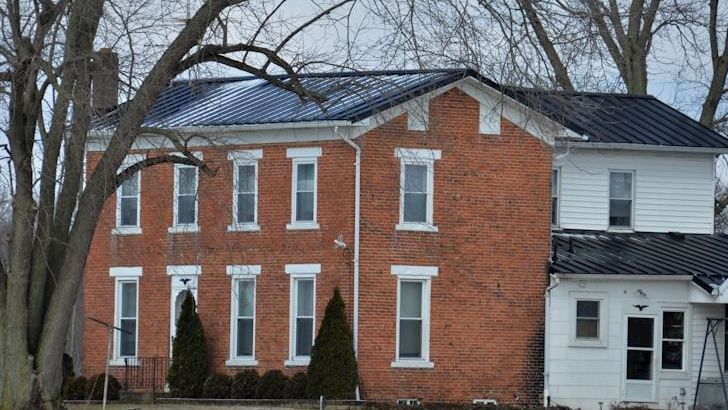Finland: Unwavering at the Top

For the seventh consecutive year, Finland has clinched the title of the world’s happiest country according to the 2024 World Happiness Report. The Finnish score of 7.8 out of 10 is rooted in social trust, generous public services, and a sense of community rarely matched elsewhere. Over 90% of Finns report feeling safe walking alone at night, and the country’s robust social safety net helps people navigate life’s setbacks. Access to nature is another key factor, with more than 75% of Finns spending time outdoors weekly, even in winter. The Finnish education system, renowned for its lack of standardized testing and emphasis on well-being, further boosts life satisfaction. Recent government initiatives have focused on reducing loneliness among the elderly, with measurable improvements in mental health. According to Statistics Finland, suicide rates have dropped by 8% since 2019, a testament to effective mental health policies.
Denmark: Social Cohesion Drives Joy

Denmark remains a close runner-up, with a happiness score of 7.6. The Danish concept of “hygge”—a sense of comfort and togetherness—permeates daily life and contributes to high happiness ratings. The employment rate is 73.2%, one of the highest in Europe, and income inequality is among the lowest globally, according to Eurostat’s 2024 report. Danish citizens benefit from universal healthcare and free higher education, removing significant sources of stress. The capital, Copenhagen, was named the world’s most bike-friendly city in 2024, and over 62% of residents commute by bicycle daily. Trust in government institutions remains strong: 80% of Danes believe their leaders are working in the public’s interest, which is markedly higher than the EU average. The country’s focus on work-life balance, with a standard 37-hour workweek, leaves Danes more time for leisure and family.
Iceland: Small Community, Big Happiness

Iceland, with its close-knit population of just 380,000, ranks third, posting a score of 7.5. Social connection is the backbone of Icelandic happiness, with 98% of respondents in a 2024 Gallup survey saying they have someone to rely on in times of trouble. The country’s progressive gender policies mean it has topped the World Economic Forum’s Gender Gap Index for the 15th year running. Icelanders enjoy free healthcare and education, and the unemployment rate has remained below 4% for much of the past year, even amid global economic uncertainty. Residents benefit from clean air and water, with 100% of electricity generated from renewable sources. The capital, Reykjavik, has invested heavily in mental health services, increasing access by 23% in the past two years. Despite long, dark winters, strong community bonds and cultural festivals keep spirits high.
Sweden: Balance and Trust Lead to Contentment

Sweden’s happiness score of 7.4 is driven by a culture that values balance, trust, and inclusivity. According to the latest OECD data, nearly 80% of Swedes report high life satisfaction, and the country boasts one of the world’s highest rates of volunteerism. Sweden’s progressive family policies, including 480 days of paid parental leave, are credited with supporting well-being among young families. The country’s robust welfare system and focus on equality have kept poverty rates below 6% for five consecutive years. The Swedish government’s recent investment of $1.2 billion in public mental health services has expanded care, particularly for young adults. Urban planning prioritizes green spaces, with Stockholm’s “City of Nature” initiative increasing accessible parks by 18% since 2021. High trust in police and government—measured at 70% in a 2024 survey—fosters a sense of security and community.
Norway: Wealth, Nature, and Social Support

Norway secured a happiness score of 7.3, buoyed by its world-leading standard of living and natural beauty. The Norwegian sovereign wealth fund, valued at over $1.6 trillion, ensures that citizens benefit from the country’s oil wealth through generous public services. According to Statistics Norway, the poverty rate remains below 8%, and life expectancy has climbed to 83 years. Norwegians enjoy universal healthcare, free education, and strong job security, with unemployment at just 3.7%. The “friluftsliv” lifestyle—embracing outdoor living—remains central, with 85% of Norwegians participating in outdoor activities weekly. The government’s commitment to sustainability has seen carbon emissions fall by 12% since 2020. Community engagement is high, with over 60% of adults involved in clubs or associations, building resilience and social ties.
Netherlands: Youth Happiness Leads Europe

The Netherlands stands out in 2024 not only for its adults’ happiness but for the well-being of its youth, ranking second globally for child happiness in UNICEF’s latest report. The national happiness score is 7.2. Dutch children report high life satisfaction, with 93% saying they feel supported by friends and family. The country’s cycling infrastructure, spanning 37,000 kilometers of bike paths, encourages healthy living and reduces stress. Work-life balance is a national priority, with the average workweek at just 30.3 hours, giving people more time for leisure and socializing. Dutch cities consistently rank among the world’s safest, and trust in government is reported at 68%. Mental health support in schools has expanded, with a 15% increase in counseling staff since 2022. These factors combine to create a culture of optimism and security.
Switzerland: Prosperity and Participation

Switzerland’s high happiness score of 7.1 is fueled by prosperity, political participation, and a pristine environment. GDP per capita stands at $92,000, one of the highest in the world, yet the country maintains strong social cohesion. Swiss citizens enjoy direct democracy, voting on national issues up to four times per year, which fosters a sense of agency and trust. According to the Federal Statistical Office, 95% of Swiss residents are satisfied with their living environment, citing cleanliness, safety, and access to nature. Health care is universal and of exceptional quality, with average life expectancy at 83.7 years. The unemployment rate sits at just 2.1%, the lowest in Europe as of March 2024. High levels of volunteering and community involvement are also credited for the country’s top ranking in social support networks.
Luxembourg: Small Country, High Satisfaction

Luxembourg, scoring 7.0, continues to outpace larger nations in happiness thanks to its wealth and inclusivity. With a population of just 660,000, Luxembourg boasts the highest GDP per capita in the EU, at $128,000 according to Eurostat 2024. Public transport has been free for all residents and visitors since 2020, reducing financial pressure and promoting equality. The country’s multilingual society—where over 60% of residents speak three or more languages—encourages openness and cross-cultural understanding. Luxembourg’s government has invested heavily in housing affordability, increasing public housing stock by 22% since 2021. Life expectancy is 82.5 years, and a recent Ministry of Health survey found that 89% of residents feel safe and supported by their communities. The country’s robust social welfare system ensures that vulnerable populations are well cared for.
New Zealand: Nature and Belonging Boost Morale

New Zealand’s happiness score of 6.9 is closely linked to its stunning natural environment and sense of belonging among its diverse population. According to the 2024 New Zealand General Social Survey, 88% of people report life satisfaction, and 80% feel a strong sense of community. The government’s “Wellbeing Budget,” first introduced in 2019 and expanded in 2024, channels significant funding into mental health, education, and child poverty reduction. Over 30% of land is protected as national park or reserve, and 78% of New Zealanders spend time outdoors every week. The country’s handling of the COVID-19 pandemic has been widely praised, and trust in government remains at 75%. Maori cultural values are increasingly integrated into public policy, fostering a sense of inclusion and connection across communities.
Australia: Resilience and Opportunity

Australia rounds out the top 10 with a happiness score of 6.8. The country boasts a resilient economy with low unemployment—currently 4.1%—and a high standard of living. According to the Australian Bureau of Statistics, 85% of people rate their health as good or better, and life expectancy is now 83.2 years. Australians enjoy world-class public healthcare and education, and social mobility is robust, with 76% of people believing they can improve their circumstances through effort. The country’s natural beauty and outdoor culture contribute to high physical activity rates, with 72% of adults exercising weekly. The government’s National Mental Health Strategy, expanded in 2024, aims to further reduce stigma and improve access to care. Community spirit remains strong, with 60% of Australians involved in volunteering or local groups.
Unhappy Outliers: Lebanon, Afghanistan, and Zimbabwe

Lebanon has seen its happiness ranking plummet to near the bottom, with a score of just 2.7 in 2024. Ongoing political instability, hyperinflation, and the aftermath of the Beirut port explosion have left 90% of the population living below the poverty line, according to the UN. Afghanistan remains the unhappiest country in the world for the third year running, with a score of 1.7. The Taliban’s return to power has stripped women and girls of basic rights, and food insecurity affects over 23 million people. Zimbabwe, with a score of 3.0, continues to struggle under economic mismanagement and hyperinflation, with unemployment estimated at 20%. Life expectancy in Zimbabwe is just 59 years, and over 70% of the population live below the poverty line. These nations illustrate how conflict, poor governance, and economic crisis directly undermine well-being and hope for a better future.




